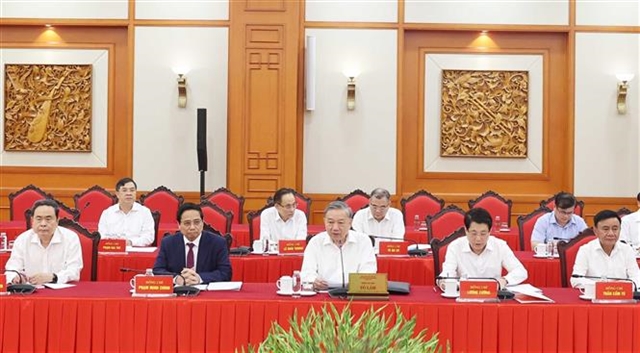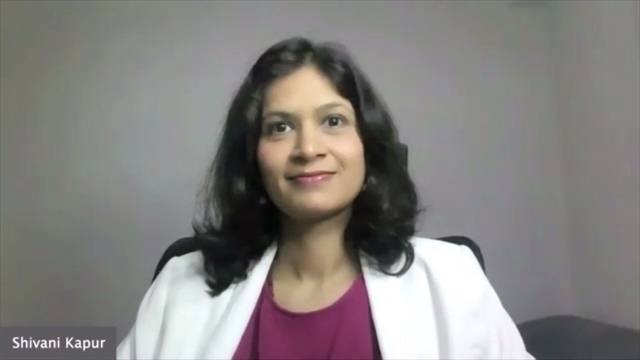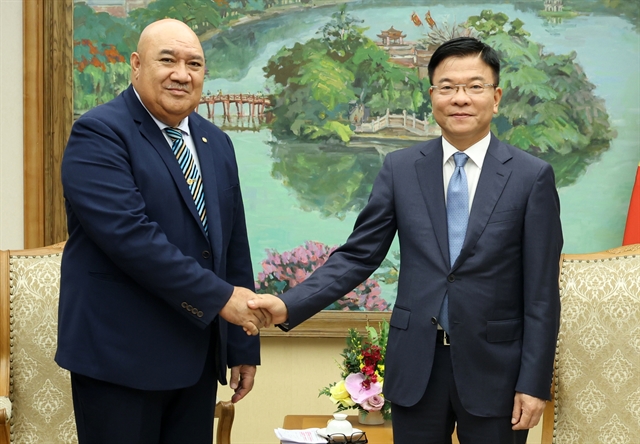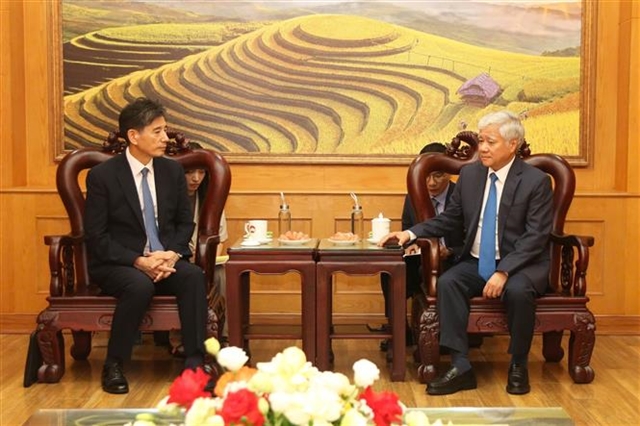 Society
Society

The COVID-19 pandemic’s impacts on women’s access to healthcare and the crucial role digital technology and collaboration play in shaping an empowered future for women’s health and family planning were highlighted at an Asia Pacific virtual roundtable this morning.

|
| No Title |
HCM CITY — The COVID-19 pandemic’s impacts on women’s access to healthcare and the crucial role digital technology and collaboration play in shaping an empowered future for women’s health and family planning were highlighted at an Asia Pacific virtual roundtable this morning.
The ‘Take Control: Shaping Digital Health for Women in the COVID Decade’ meeting, organised on the occasion of World Contraception Day, brought together healthcare professionals, policymakers, non-governmental organisations (NGOs), tele-health providers, industry trade groups, and digital influencers who underlined their commitment to supporting women in taking control of their health and lives.
Delegates said since the beginning of the pandemic millions of women have lost their capability to plan for their families and protect their health, deepening existing gender inequalities and impacting long-term socio-economic sustainability.
Of three expert panels, the first, which discussed ‘No Woman Left Behind: COVID-19 and Unplanned Pregnancies,’ drew attention to the impact of COVID on women’s access to healthcare and family planning resources, and the burden of unplanned pregnancies.
Data from International Planned Parenthood shows that 5,633 static and mobile clinics and community-based care services had been closed in 64 countries by April 2020, or almost immediately after the outbreak began.
“We have observed three key delays that were further aggravated by the outbreak, causing a rise in unplanned pregnancies: delays in getting family planning information to women, delays in women being able to physically access medical facilities, physicians and medication due to movement restrictions, and delays in getting health services up and running again,” Dr Jameel Zamir, International Planned Parenthood Federation’s director of programmes and performance, East South East Asia and Oceania Region, Malaysia, said.
“On the ground, I’ve seen supply chain problems, overwhelmed health facilities and women fearful of seeking healthcare, and when access to family planning is disrupted, entire families struggle to cope.”
With movement restrictions driving many women online for more information on healthcare and family planning, barriers such as misconceptions and cultural and social stigma also present challenges.
The second expert panel, on ‘Step Into Her World: Engaging to Empower Online,’ discussed key drivers of misinformation on family planning and contraception online, the need for credible voices on popular platforms and the importance of sustained dialogue.
Along with flourishing online platforms, the pandemic has also accelerated healthcare digitisation on an unprecedented scale.
Experts on the third panel, ‘The New Phygital: Innovating expanded access to women’s health’ shed light on how technology has been a critical enabler in the recovery and resilience of today’s health systems and expanding women’s access to healthcare and family planning solutions.
At the conclusion of the roundtable, all 16 panellists pledged to renew their commitment to empowering women to take control of their health and lives despite the pandemic.
They also called for wider public support to the pledge and giving voice to women’s health needs and empowerment.
“Safeguarding women’s health and preserving the progress made in access to contraception remain our top priority amidst COVID-19,” Dr Shivani Kapur, head of medical affairs, pharmaceuticals division Asia / Pacific, Bayer, said.
“Multi-stakeholder collaboration and digital innovation are critical in supporting family planning with undisrupted access to contraceptives, as well as increasing knowledge of women’s health, family planning and contraception.
“Our long-standing commitment to women’s health drives us to shape a better future – by empowering women to make informed decisions about their health and family planning, and advancing an innovative portfolio of women’s health treatments, to serve women with the right solutions, at the right time, and on the right platforms.”
The roundtable was convened by Bayer in collaboration with key organisations in the region to mark the 15th World Contraception Day.
Across the Asia Pacific, Bayer has been collaborating with governments and organisations to introduce initiatives that promote greater contraception awareness and education. To achieve its vision of ‘Health for all, Hunger for none,’ Bayer will continue to invest in multi-stakeholder aid programmes with the ultimate goal of providing 100 million women in low- and middle-income countries with access to modern contraception methods by 2030. — VNS




